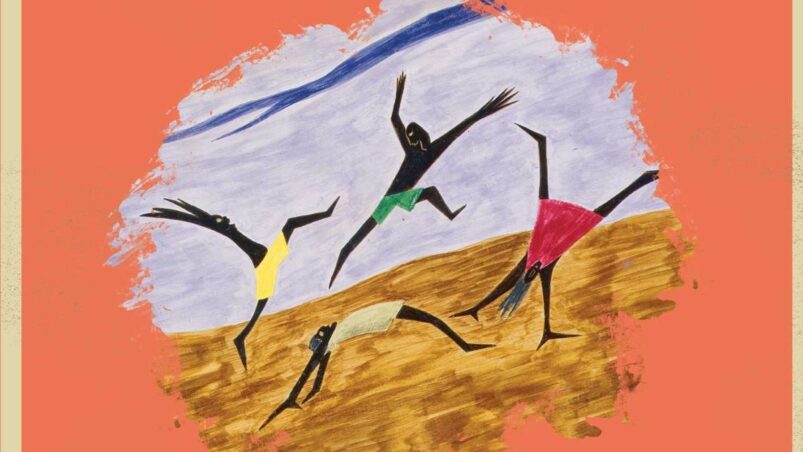Jabari Asim’s Yonder: Empowerment through Love and Language
Hope can be found where love is present. The environment or other adverse circumstances can hamper the human ability to love. Some people feel dehumanized and cannot love, or worse, unworthy of love. Degrading violence can cause people to see human relationships as meaningless if they are subject to it. However, others can form meaningful relationships with another person, romantic or platonic. Even during terrible trauma, love can create a safe space for you to be yourself. The love we have can give us a reason to live. Jabari Asim and Yonder are two couples who find strength in blossoming relationships despite being trapped within chattel slavery.
Yonder is set in the middle of the 19th century and joins the vast canon of American fictional slave stories. Asim weaves magic realism into his fictionalized but historically informed text. This book is a collection of multiple narratives that weave chronologically through time. Through alternating perspectives, four enslaved people recount their unique interior-and exterior experiences under Cannonball Greene, plantation owner.
The headstrong William is first presented to readers as he immediately displays the power of language. Cannonball Greene, as well as any other White slavers, is given the name Thief by William. Instead of calling themselves “slaves,” William explains to Cannonball Greene how his fellow prisoners coined the term Stolen to refer to their stolen existence.
Cannonball Greene sees himself as an academic expert on Black slaves in America. He can’t understand the “lesser mindsets” of his enslaved subjects, so he believes they are incapable of feeling true love. Language is the difference between captor and captive. Greene has lost the Stolen’s dialect, so he believes they don’t feel emotion like the White patriarchy.
The elders pass on another verbal tradition to the Stolen kids. The ancestors chose seven words to whisper at the Stolen children to teach them how words can change their lives. The children recite these words until they can see themselves. Each individual has their own words, which they and only them can use. These words are not stolen. They may not be able to save themselves from the atrocities they face, but they are words they can rely on. “Our language or our secret language was our last defense.” The Stolen can separate themselves from the beliefs and words forced upon them by their captors. The Stolen, whose lives can only be reclaimed through small victories, have great language significance.
Yonder is infused with the Death motif in unexpected ways. One death, in particular, strengthens the relationship between William, the free-thinking Cato, and their love. They foreshadow the terrible horrors that lie ahead. But, William and Cato share a traumatic event that ignites a lasting friendship. Despite their horrible existence, love triumphs over death for these two men.
Cato, possessed by a sense of freedom, serves as William’s foil. The women of Yonder also serve as foils for the men. Ransom, the Black preacher, comes to Placid hall and plants seeds of freedom into the Stolens’ aching hearts. Ransom’s words of independence and fleeing Yonder (Canada), a place where Stolen can find liberty – seduce Cato, Margaret and Pandora. Ransom’s language becomes a plea to the three other characters, while William struggles with the dangers of such thinking. Margaret holds the upper hand over William, however. Her love for William is bold and outspoken. Although Cato is a strong supporter of Pandora’s love, Pandora continues to prove herself to be a determined woman committed to her full potential.
Yonder is a novelist with all the qualities of an award-winning book. The narrative is not affected by the magical realism elements. Some Stolen characters in the book find the fantasy world’s stories or interactions with spiritual forces comforting and surrealist ways of sharing their inner thoughts. The story of each character is unique, and readers will easily identify them, which adds to the book’s transcendent status as poignant literature.
Asim depicts characters who communicate with different versions of freedom, love, and faith, so that we can be aware of both intersectionalities and individuality. Yonder’s prose is both brutal and charming. The Stolen’s stomach-churning scenes are alleviated by twinkling moments that bring joy and laughter. Jabari Asim’s Yonder balances compassion, anger, singularity, and dualities with a clear message about love, language and is a beautiful example of Jabari Asim.

















